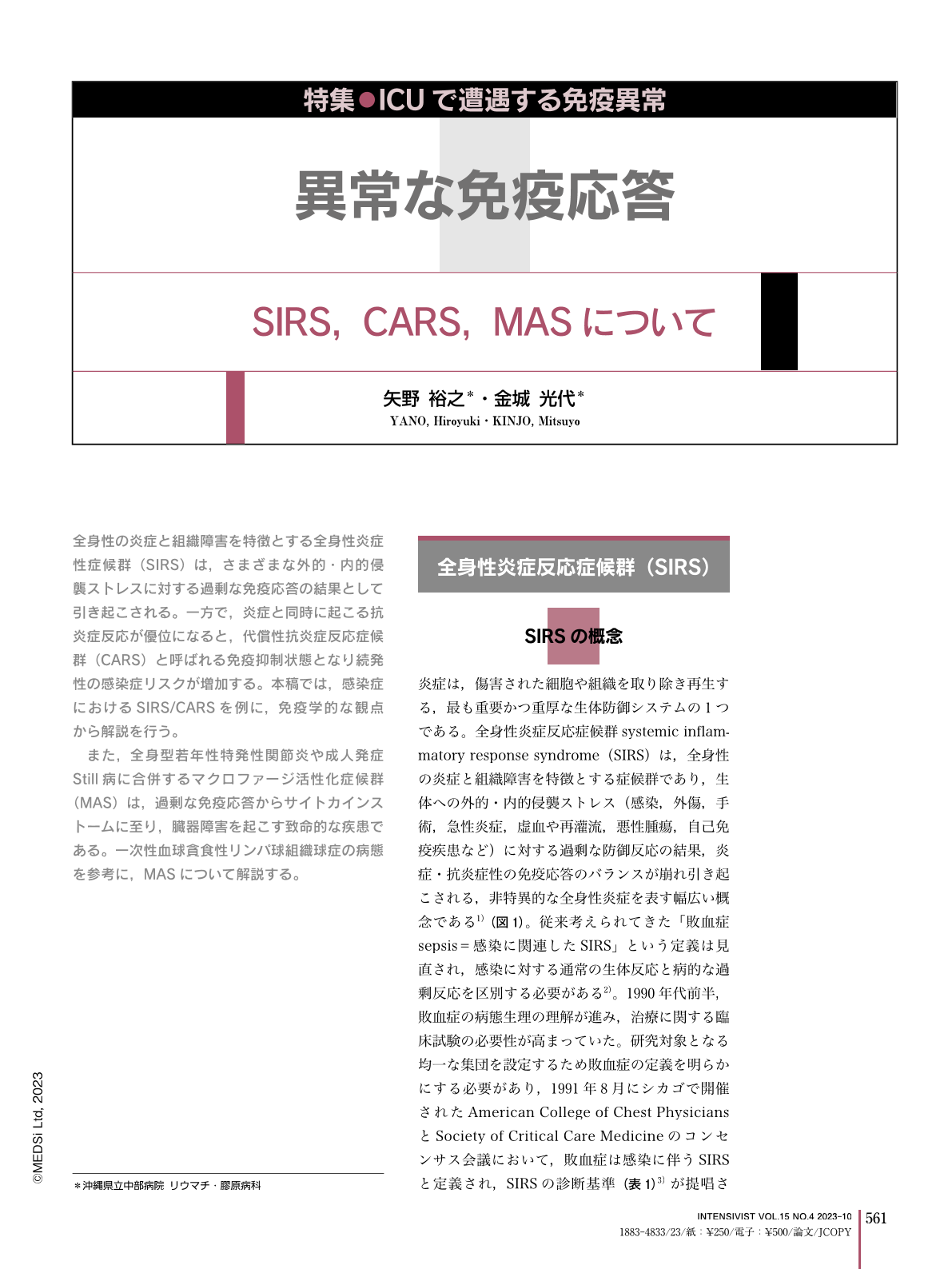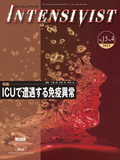Japanese
English
- 有料閲覧
- Abstract 文献概要
- 1ページ目 Look Inside
- 参考文献 Reference
全身性の炎症と組織障害を特徴とする全身性炎症性症候群(SIRS)は,さまざまな外的・内的侵襲ストレスに対する過剰な免疫応答の結果として引き起こされる。一方で,炎症と同時に起こる抗炎症反応が優位になると,代償性抗炎症反応症候群(CARS)と呼ばれる免疫抑制状態となり続発性の感染症リスクが増加する。本稿では,感染症におけるSIRS/CARSを例に,免疫学的な観点から解説を行う。
また,全身型若年性特発性関節炎や成人発症Still病に合併するマクロファージ活性化症候群(MAS)は,過剰な免疫応答からサイトカインストームに至り,臓器障害を起こす致命的な疾患である。一次性血球貪食性リンパ球組織球症の病態を参考に,MASについて解説する。
Systemic inflammatory response syndrome (SIRS) is caused by an excessive defense response to intrinsic or extrinsic stimuli to eliminate an insult, resulting in damage to the end organ. Compensatory anti-inflammatory response syndrome (CARS) occurs simultaneously with SIRS and is a condition of auto-immunosuppression. The balance between SIRS and CARS dictates the patient's prognosis. In the present report, we discuss the concept and mechanisms underlying SIRS and CARS. Macrophage activation syndrome (MAS) is characterized by an exaggerated inflammatory immune response and hypercytokinemia. It is a secondary hemophagocytic lymphohistiocytosis that can be a fatal complication of rheumatic disease caused by aberrant T lymphocyte and macrophage activation. In addition to the above, we also discuss the concepts, underlying mechanisms, and management of MAS.

Copyright © 2023, MEDICAL SCIENCES INTERNATIONAL, LTD. All rights reserved.


